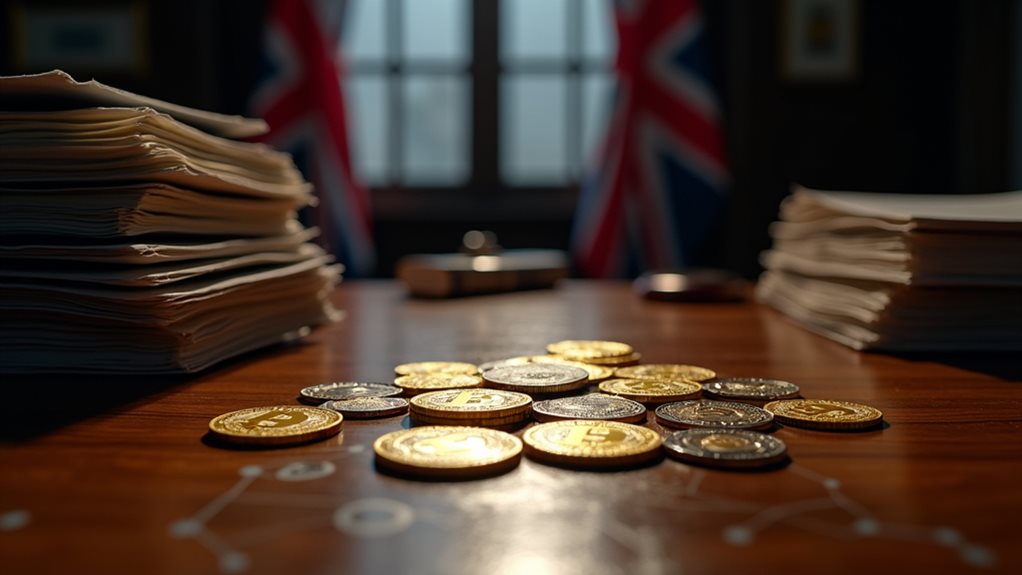The UK government wants to sell £5 billion worth of seized Bitcoin to help fix their £20 billion budget mess. Sounds simple, right? Wrong. Chinese authorities are demanding their cut of the crypto haul, which came from a 2018 Ponzi scheme bust. Fraud victims want their money back too. Meanwhile, politicians are split—some want to sell everything, others think it’s like Gordon Brown’s disastrous gold sell-off all over again. The legal circus continues behind closed doors.

While crypto enthusiasts debate whether Bitcoin will hit $200,000 next, the UK government has decidedly more pressing concerns—like a gaping £20 billion budget hole that needs filling.
Enter the Bitcoin bonanza. The UK is eyeing a massive sell-off of seized cryptocurrency worth roughly £5 billion. That’s billion with a ‘B’. Not exactly pocket change, even for a government drowning in fiscal woes.
The star of this financial drama? Over 61,000 Bitcoin seized back in 2018 from a Chinese Ponzi scheme. What started as a £300 million headache has ballooned into a £5 billion windfall, thanks to Bitcoin’s rocket ride to $123,091. Talk about lucky timing—or is it?
Chancellor Rachel Reeves is under the gun. Rising inflation, borrowing costs through the roof, and a promise to slash debt within five years. Ministers are split between hiking taxes or selling assets. Guess which option sounds more politically palatable?
But here’s where things get messy. Really messy.
Those seized coins aren’t exactly sitting pretty in a government vault, ready for auction. Legal battles rage on multiple fronts. Chinese authorities want their slice. Fraud victims demand restitution. The Bitcoin remains tangled in litigation, making any sale complicated at best. The ongoing situation mirrors the regulatory chaos that prompted Ripple’s recent legal victory against the SEC.
Critics aren’t holding back either. Crypto advocates compare this potential fire sale to Gordon Brown’s infamous gold sell-off—a move that still haunts British fiscal policy discussions. Reform Party’s Zia Yusuf suggests the opposite approach: stockpile more Bitcoin, don’t dump it.
Bitcoin Policy UK calls the whole narrative sensational, pointing to unresolved ownership disputes. Fair point, considering authorities haven’t even disclosed exactly how much crypto they’re sitting on. The seizures connected to Jian Wen represent the largest Bitcoin confiscation in U.K. history.
The Home Office is scrambling to build infrastructure for secure crypto management. Because apparently, selling billions in digital assets requires more than a Coinbase account and crossed fingers. The entire project will cost £40 million to establish, with service providers earning commissions on each asset sale.
Meanwhile, some politicians float the idea of treating Bitcoin as a sovereign reserve. Like digital gold, but with more volatility and Twitter drama.
The fundamental question remains: quick cash grab or strategic blunder? With legal hurdles everywhere and Bitcoin’s notorious price swings, this £5 billion gamble could either plug budget holes or become another cautionary tale.









